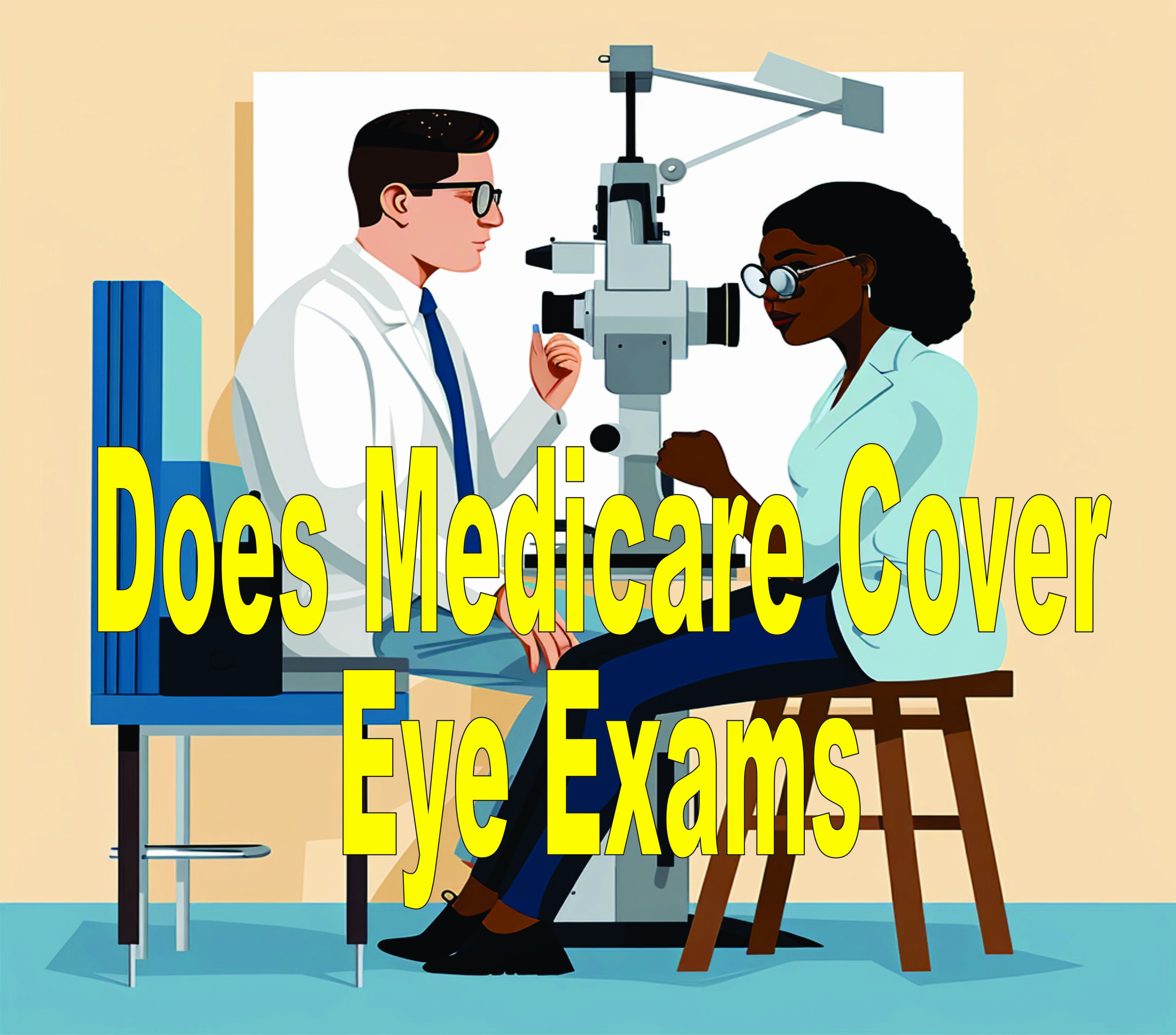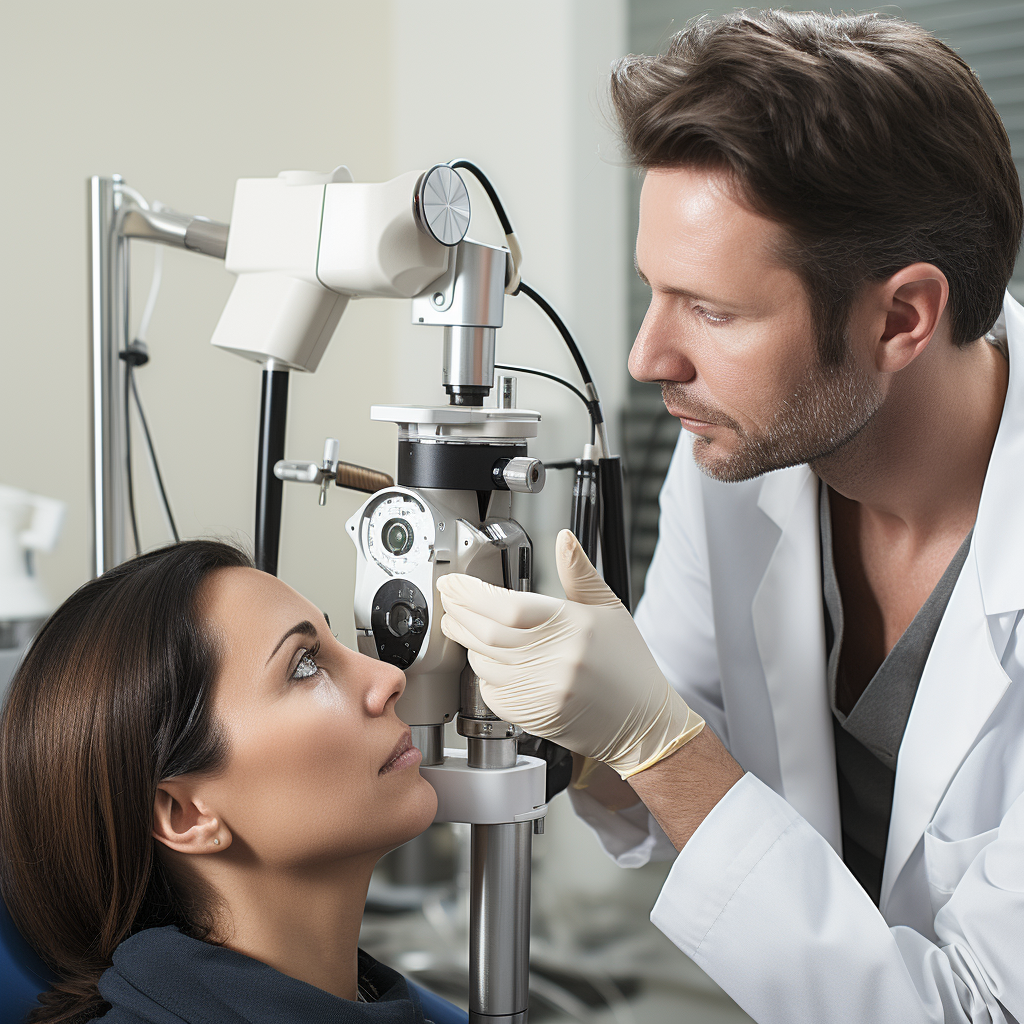Last Updated on January 25, 2024 by Lori Pace
People often ask if Medicare covers eye exams and usually refers to routine eye examinations. Unfortunately, Medicare Part A & B (Original Medicare) does not cover regular eye exams or the recommendation for corrective or contact lenses.
Medicare does cover some types of eye exams. The first step in diagnosing vision problems is to have your eyes examined. Senior citizens at high risk for severe eye conditions like glaucoma or eye cataracts should have their eyes examined.
What Is an Eye Exam?
An eye exam includes a variety of tests that assess your eyesight and look for any eye problems. A doctor can shine a bright beam of light on your eyes to assess your vision and ask you to focus through multiple lenses.
Every step in an eye exam evaluates different aspects of your vision well-being. Because issues can be detected in the earliest stages, they are most easily corrected.
Routine eye exams allow doctors to offer professional advice and tips for how to adapt to changes in your vision. An eye exam can also reveal potential health problems.
4 Eye Exams Medicare Covers
Original Medicare Part A & B does not cover routine eye exams. Medicare does cover some types of eye exams, including:
1. Diabetic Retinopathy
Diabetic patients can develop diabetic retinopathy. This is when your blood sugar level increases and causes damage to the blood vessels that supply blood to your retina. This condition can sometimes lead to visual loss. Medicare will cover one eye exam per year for those with diabetes to look for diabetic retinopathy.
2. Cataract Surgery
Cataracts are when your lenses become cloudy. Your eyes help focus on different things. However, cataracts can blur your vision and cause you to see fuzzy or pale.
Medicare covers some costs associated with cataract surgery.
- Installation of an IOL (intraocular lenses). This small, clear disc replaces the cataract-infected lens.
- After the IOL installation, a pair of spectacles or contact lenses are installed.
- The cost to hire the facility where the procedure will take place.
Medicare does not pay for typical IOLs. Some IOLs can be used to treat presbyopia and astigmatism. Medicare won’t cover the cost of installing IOLs to treat such conditions.
3. Glaucoma
This problem can cause damage to the optic nerve and may lead to vision loss, it is important to remember that it’s more common as you age.
Medicare will cover one eye exam per year to look for glaucoma in those who are most likely to develop it. If you are one of the following:
- In a family history of developing glaucoma,
- You are diabetic
- An African American over 50
- Hispanic over 65 years old,
4. Macular Degeneration
Macular degeneration refers to a condition that results in visual loss of objects within close proximity. This can affect daily activities such as driving and reading. Medicare covers some, but not all, of the analytic checks and treatments for macular degeneration. Injectable medications are one example of the treatment Medicare covers for macular degeneration.
Which Other Eye Exams Does Medicare Cover?
Medicare pays eye injuries or disorders that can cause vision problems. Medicare also pays for the following conditions:
- Conjunctivitis is an eye infection.
- Detached retina.
- Corneal disorder.
- Eyelid disorder.
- Allergies and dry eyes.
Which Parts of Medicare Pay for Eye Exams?
Medicare Part A
This part of Medicare covers your lodging in hospitals and other inpatient clinics, along with hospital stay if you have to undergo an eye exam.
The majority of individuals don’t have to pay premiums for Medicare Part A. The amount they pay in coinsurance when they are in hospital is determined by the type of hospital they were admitted to and how long they stayed there.
Medicare Part B
You are also responsible for 20% of Medicare approved expenses. This part of Medicare covers the following eye checks
- Diabetic retinopathy annual checking
- Glaucoma is checked once a year.
- Treatment and checks for macular generation.
- Installation of IOLs in cataract surgery.
- After cataract surgery, contact lenses or spectacles are required.
Medicare Part C
Private Insurance providers offer this part of Medicare is also known as the Medicare Advantage plan. Medicare Advantage Plan includes all benefits of Medicare A&B, as well as benefits such as prescription drug coverage. This plan will also cover visual benefits and pay for:
- Routine eye exams
- Contact lenses
- Lenses and spectacle frames
You should note that costs and benefits in Medicare Part C will vary depending on which plan you subscribe to. Before you choose one, make sure to carefully compare the benefits and costs of the Medicare Advantage Plan.
Medicare Part D
This part of Medicare is an elective Medicare plan that includes prescription drug coverage. Medicare Part D, just like the Medicare Advantage plan, is also available by private insurance providers that are authorized by Medicare.
Medicare Part D provides coverage for some prescription drugs after eye exams. This includes medication for diabetic retinopathy and glaucoma.
Please note that Medicare Part D’s copayments and drug coverage will vary depending on which subscribed plan you have. Please carefully review the Medicare Part D programs in order to make sure you are getting the right drugs.
Final Thoughts
Eye problems are common and get worse with age. This makes eye exams essential to your overall health and well-being. To access the best eye care, it is necessary to understand your Medicare coverage options fully. Besides, if you wonder about Medicaid, we have an article solving that question, “Does Medicaid cover eye exams”!



